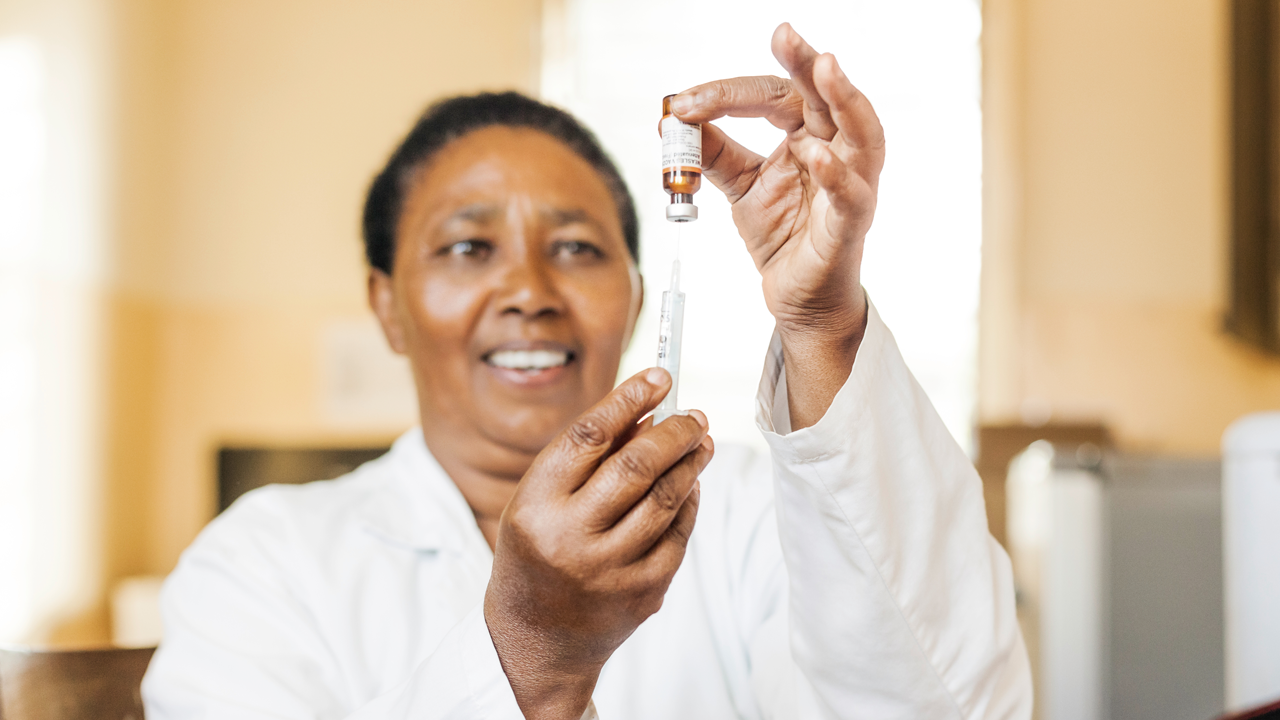
The 2014 Ebola epidemic in West Africa was the largest outbreak of the disease in history. It had a devastating impact, infecting more than 28,000 people and killing more than 11,000, according to the U.S. Centers for Disease Control and Prevention.
Researchers at the University of Minnesota are now leading an international effort to ensure nations have the skilled health care workers they need to battle the spread of infectious diseases, like Ebola, as soon as these threats emerge. The One Health Workforce project, funded by a five-year award of up to $50 million from the United States Agency for International Development (USAID), is working to build a stronger workforce of health professionals in 11 countries that currently lack the professional resources needed to respond to a pandemic threat. The project comes in part as a response to the Global Health Security Agenda, a White House initiative that emphasizes the need to prevent, detect and respond to future infectious disease outbreaks.
One Health Workforce brings together an international partnership of universities that includes the U of M; Tufts University in Massachusetts; 14 public health and veterinary medicine institutions from Democratic Republic of Congo, Ethiopia, Kenya, Tanzania, Rwanda and Uganda; and 10 universities located in Indonesia, Malaysia, Thailand and Vietnam. Experts from across academic disciplines at these institutions are coming together to face the challenge of infectious diseases.
Well-trained global health professionals play a key role in mitigating the deadly toll of infectious disease outbreaks. The One Health Workforce project emphasizes the importance of having professionals within each country’s indigenous workforce that are trained to curb and prevent the spread of diseases.
“These resources will allow previously vulnerable countries to respond more quickly and efficiently to an emerging threat,” said John Deen, Ph.D., director of the One Health Workforce project and professor of veterinary population medicine with the U of M College of Veterinary Medicine. “It is important to be able to understand and detect diseases, but we also need a workforce capable of responding in the event of a pandemic outbreak.”
The project focuses on disease surveillance, training and outbreak response not only for doctors, nurses and public health workers, but also for veterinarians, as the majority of these diseases spread from animals to small populations of humans, often in rural areas. Fast responses can help prevent the disease’s spread before it reaches urban areas and containment becomes more difficult.
Coming Together for a Stronger Health Workforce
As One Health Workforce, which began in late 2014, enters its second year, the U of M and Tufts University are working with the partner institutions across Africa and Asia to implement workforce training programs that will prepare these nations to respond to infectious diseases.
Even within the U of M, the project is highly collaborative. Apart from Deen, there are more than 20 other University researchers contributing to the project, including experts in public health, medicine, nursing and veterinary medicine. For example, Katey Pelican, Ph.D., associate professor of veterinary population medicine with the College of Veterinary Medicine, is currently meeting with partner universities at a conference in Africa, where she is working to organize and plan the curriculum for training health workers to respond to disease threats.
The project also reaches beyond the health sciences to include other fields, such as public policy and environmental sciences. Experts from multiple schools and centers, including the U’s Institute on the Environment, for example, are helping describe the challenges caused by ecological change. This type of cross-disciplinary collaboration is what makes U of M researchers well prepared for the challenge the One Health Workforce project takes on, Deen said.
“We have experts that have worked together, both in research and education, in a multidisciplinary fashion,” he said. “Their experience will be invaluable in taking on an issue as complex as the threat of infectious diseases.”